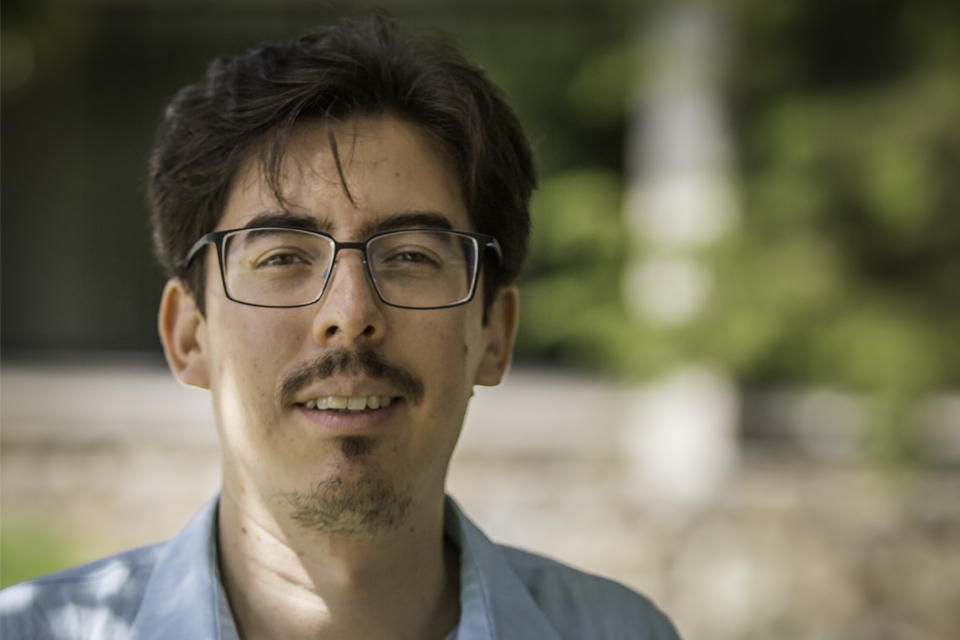English PhD Candidate Emiliano Gutierrez Popoca Discusses His Journey to the National 3MT Competition

January 24, 2023
Simon Goodacre | Graduate School of Arts and Sciences
Last year, English PhD candidate Emiliano Gutierrez Popoca won the Three Minute Thesis (3MT) competition at Brandeis and proceeded through the regional event to compete in the national competition in San Francisco. We caught up with Emiliano earlier this month to discuss his journey to the national competition and hear his advice for students participating in 3MT this year.
Can you tell me about your journey to the national 3MT competition?
I received a lot of encouragement from the English Department faculty and GSAS to participate in the Brandeis competition. I was thrilled and surprised that I won the Brandeis 3MT, as there were so many wonderful presentations from my colleagues. Winning gave me confidence to go for the Northeastern Association of Graduate Schools competition. I was also gladly surprised of winning at the regional level, and that made me realize that my topic and presentation were catching people’s attention. I had a wonderful experience traveling to San Francisco for the 3MT showcase at the Council of Graduate Schools Annual Meeting. This meant a new challenge, since it was the first time I presented in person. I was happy I could present in front of an audience, and I received very positive feedback from attendants and other participants.
What made you want to participate in 3MT in the first place?
Did anyone encourage you? I was encouraged by faculty in the English Department. The fact that there are not many participants from the humanities in the 3MT every year was also a motivation for me. I was interested in presenting a thesis in literature for a broader, non-specialized audience. Coming from a discipline that privileges written communication, I think it is important to develop oral presentation skills as well.
What did you learn from this experience?
I had to think outside my field and discipline to communicate the topic of my dissertation and its relevance. This process made me realize what were the most important stakes of my research, which has been helpful for guiding my writing, especially my dissertation’s introduction and conclusion. Additionally, preparing and presenting for the 3MT has helped me improve my communication skills for job interviews and conferences. It’s been great to have the chance to practice my dissertation "elevator pitch."
What advice do you have for students considering competing in the competition this year?
I would advise grad students to show their presentation drafts to as many people outside their discipline as possible. That really made a difference for me, as I realized when I was relying too much on discipline-specific jargon. Watching other 3MT presentations is also very useful, as you learn what makes a presentation engaging and memorable, what works well and catches people’s attention. I definitely would encourage students to participate. I think the 3MT competition will have a positive impact in unexpected ways in your research, skills and confidence.






